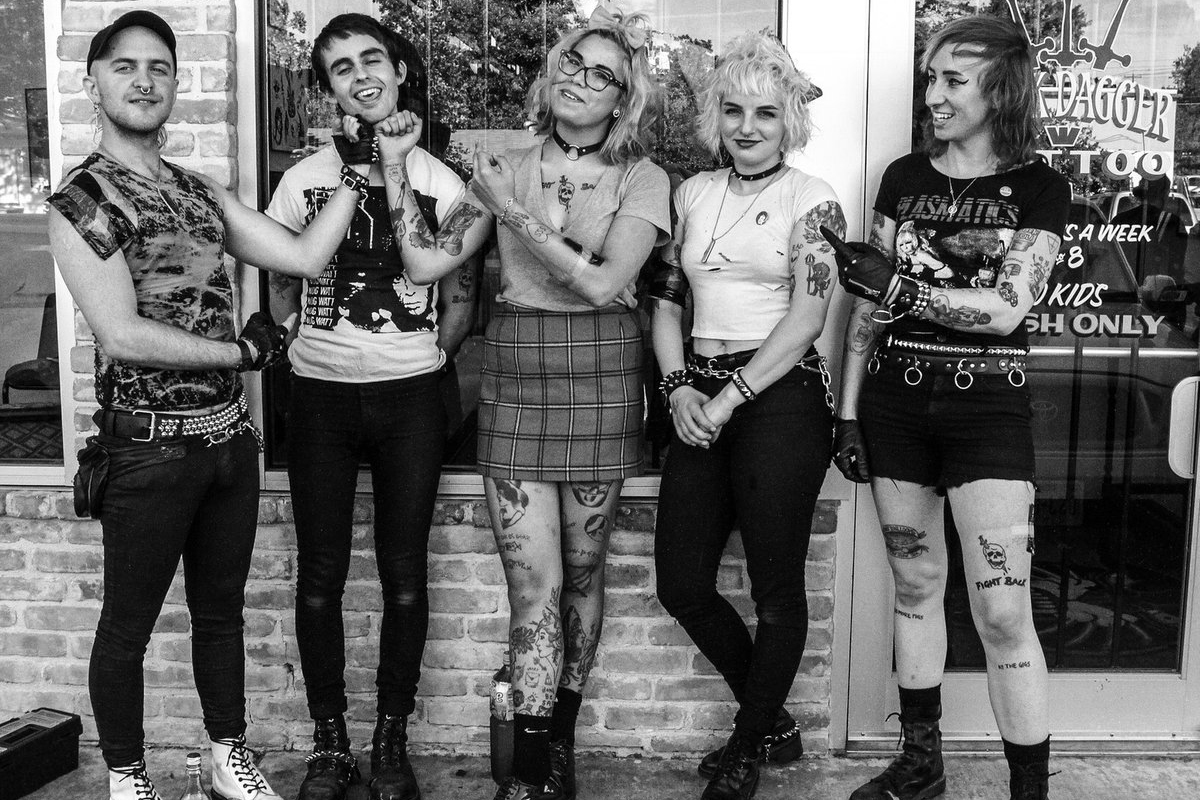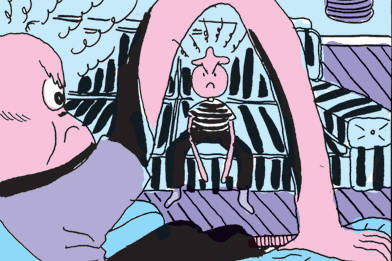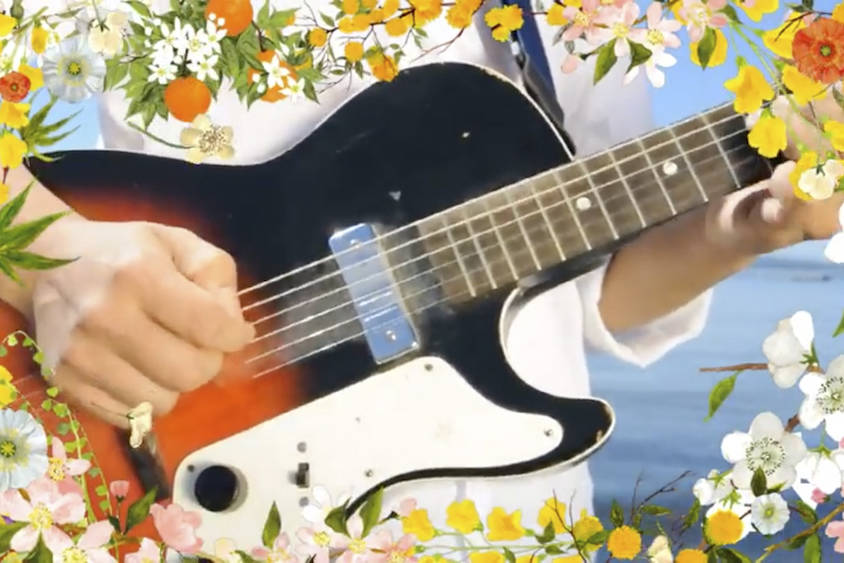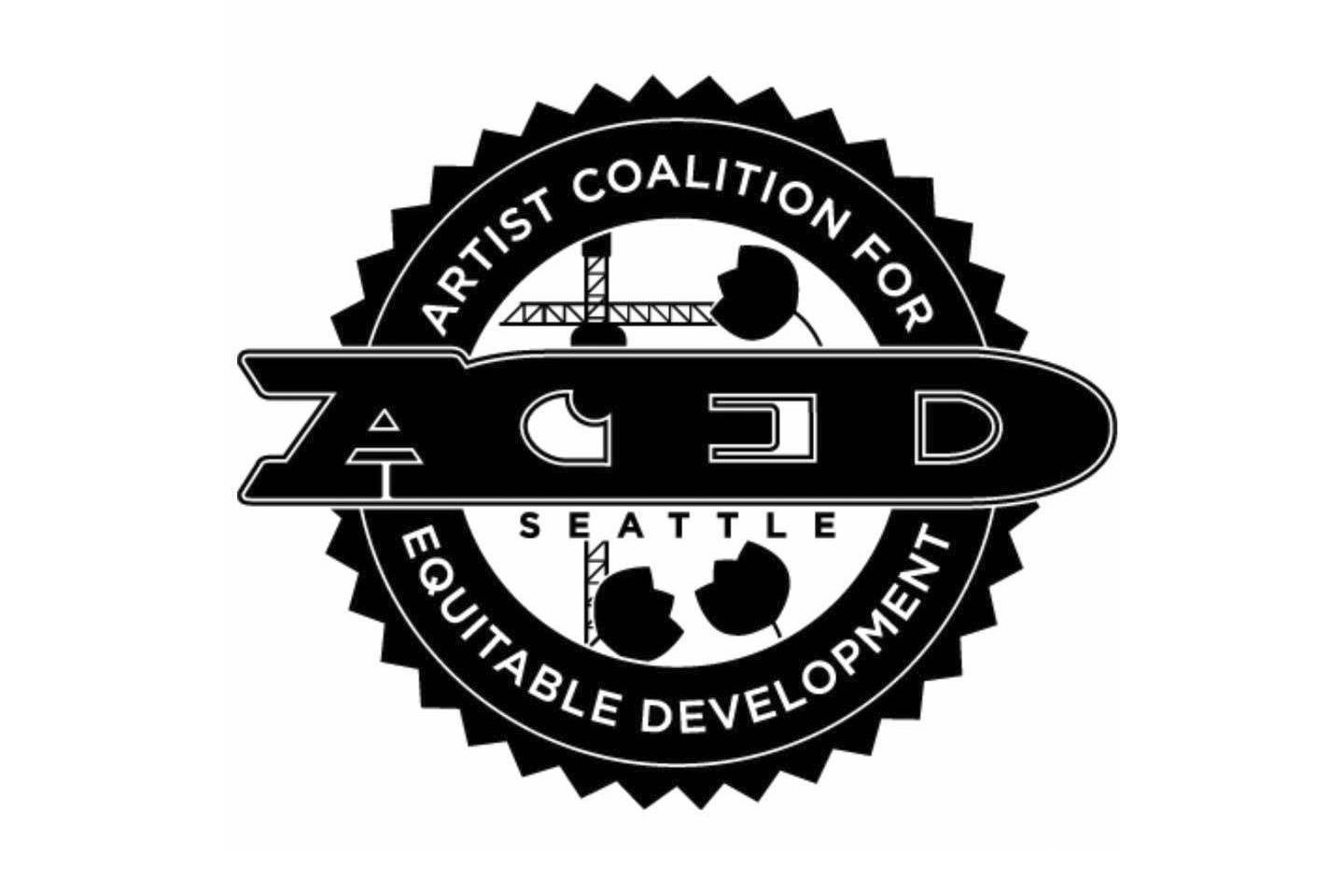The day after the Orlando shooting, Maia Doty, who identifies as queer, decided to drive up to one of their favorite spots, Deception Pass. They needed to get out of Seattle. The tragic news, and the sadness it brought, was too much to process. Earlier that same day, Olympia hardcore band G.L.O.S.S., short for Girls Living Outside Society’s Shit, surprise-released their new EP, Trans Day of Revenge. The band’s timing seemed more than a coincidence. Doty listened to the album as they made their way to the park, where they would stand on its iconic bridge and, for three hours, contemplate jumping off.
“I was thinking that it would be better this way,” Doty says, “that I would get to die a little happier than if someone else did it. Like, ‘Oh, I’ll just clean up the trash myself’ because that’s all we are to other people: disposable. I’ve been hurt before for being gay, and what’s the next step? I’ll be out with my friends and somebody doesn’t like it and decides to fucking blast me then and there? I just wanted it to be over.”
Wrestling with their feelings, Doty thought about a song they’d just heard on Trans Day of Revenge, “We Live.” In a short minute and 15 seconds, over thrashing dive-bomb riffs, G.L.O.S.S.’ lead singer, Sadie Switchblade, a trans woman with a thunderous yell, simply reaffirms the existence of the queer community: “We live/Even as we wonder why/We live/With trauma locked inside/We fight/Against the urge to die/Parched for love and cast aside.
“Childhood shame/Internal blame/Incest bore a complex pain/We live and die/Against the grain/For ourselves/We live.”
“When I hurt, sometimes I go into this train of thought,” Doty says. “ ‘This world will never be for me, it will never be safe for me and my friends, I’m tired of watching them get hurt or die.’ Hearing that song, I realized I could choose to be sad or choose to be angry. When I was up there I cried a lot, but then I tried screaming and it felt a lot better—I’d rather fight until I fucking die than end it.”
Unlike despair, rage can empower.
G.L.O.S.S., the most vital band to emerge from the Northwest in the past few years, arrives at a volatile tipping point in this country. With the federal legalization of same-sex marriage in 2015, many straight, cisgendered people assume the dial for LGBTQ folks is steadily moving toward justice—but in most cases, that landmark decision benefitted only the community’s most privileged members.
“HRC, selfish fucks/Yuppie gays threw us under the bus,” Switchblade screams on Trans Day of Revenge’s titular track. “Black trans women/Draped in white sheets/Beaten to death/Harassed by police/Homeless elders/Wander the streets/Trans day of revenge/Not as weak as we seem.”
For trans folk, queer youth, and LGBTQ people of color, simply being is still met with extreme resistance in this country. On a legislative level, trans folk are currently fighting a number of unfathomably absurd bills that would deny them the simple right to use a public bathroom—a dehumanizing push that comes right after 2015, the deadliest year for trans people on record. This year has proven no better—in 2016, 14 trans people have been murdered thus far, the majority of them of color. Meanwhile, only 18 states in the country have statewide employment nondiscimination laws in place that include protections for both sexual orientation and gender identity. On a federal level, it is legal for employers to openly discriminate against LGBTQ people.
On a cultural level, toxic masculinity has poisoned our nation’s men, conditioning them to dominate and destroy everything considered feminine—the culture that allows Brock Turner to get away with a six-month sentence for his brutal rape, and that drove Omar Mateen, who allegedly struggled with his own closeted homosexuality, to go on a murderous rampage, killing 49 innocent people at a gay Latin dance night.
In general, the LGBTQ community has striven for justice with patience, attempting to bridge the gap and cultivate understanding with countless educational campaigns and workshops, appealing to the country’s sense of empathy. G.L.O.S.S. and Trans Day of Revenge stands as a counterpoint to this approach. Rather than trying to prove their humanity to those who won’t accept or even try to understand it, in the face of repeated violence, they wield a knife and say “Try me.” Rather than ask for a safe space, they demand it, and make space unsafe for those who would dare harm the community.
“When peace is just another word for death/It’s our turn to give violence a chance!” Switchblade bellows on Trans Day of Revenge’s blistering opener, “Give Violence a Chance.” Searing drum blasts and ripping power chords charged with riotous energy create sonic barbed wire, within which Switchblade declines to let anyone off the hook, calling out racist police, “self-appointed community leaders,” and the court system. On “Fight,” the record’s most punishing track, she arms herself and the listener against oppressors—“If you don’t take flight/You’ll take a brick to the face.” On “Out From the Desk,” the album’s explicit rallying cry for action, Switchblade calls people to go out and fight. “Bent ears/Can’t be enough/Out from the desk/Let’s all crew up/Boot the fucker!”
At a G.L.O.S.S. show in Seattle earlier this year, before the group played their set, two women got onstage and gave the audience a self-defense lesson. They demonstrated chokehold and disarming techniques to fend off aggressors in light of the uptick in violence and rape on Capitol Hill. As Switchblade took to the stage, a knife visibly sheathed in a large leather holster on her studded belt, she called all the queer folks, women, and people of color to the front of the stage, and asked the straight men to stand in back. When the band launched into the devastating d-beat explosion of the lead song off their 2015 debut record, “G.L.O.S.S. (We’re From the Future),” a riot of women, trans/queer folk, and people of color erupted, grinning and moshing and pumping their fists defiantly in the air.
Our country tends to glamorize nonviolence as a means toward justice. But for a community constantly berated by hostility from politicians and strangers on the street who deny their humanity and very existence, the violent clarity of G.L.O.S.S.’ call to arms is proving the merits of righteous rage. If anything, it’s simply a mirror of what the community experiences every day, turned back against the society that inflicts it. Much of today’s punk, especially on a local level, has devolved into apathetic three-chord songs about pizza, beer, and the glories of being a screw-up. G.L.O.S.S. doesn’t have this option—they’re in the businesses of fighting for and saving lives—and equipping folks under siege to do the same.
ksears@seattleweekly.com








